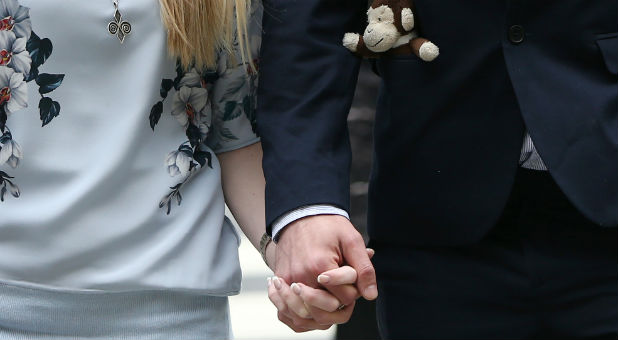‘Tragic’ Charlie Gard Case Forces Us to Ask This Basic Question
Charlie Gard has become the current human face of the basic, gut-wrenching debate about who makes end-of-life decisions for human beings.
That’s the premise of a new op-ed in LifeZette.com from evangelical leader and president of Southern Evangelical Seminary (SES) Dr. Richard Land about the case of 11-month-old Charlie, his parents’ desperate wishes to save his life and a health care system exerting control.
“We must not allow ourselves to get lost in the medical, technical and legal jargon of this tragic case,” Land wrote. “The Charlie Gard case is at the crux of the titanic debate raging throughout Western civilization of those advocating the historic ‘sanctity of life’ ethic, versus those who are espousing a ‘quality of life’ ethic. However, the Charlie Gard case is adjudicated ultimately, this crucial debate will continue, and it has enormous implications for end-of-life decisions for tens of millions of terminally ill patients at all stages of life.”
Today in London, a U.S. doctor is examining Charlie, as the debate to save his life or allow him to “die with dignity” rages on.
“The advocates of the quality of life ethic are asserting that Charlie does not have a life worthy of living,” Land continued. “The Third Reich called it ‘lebensunwertes leben.’ The merciful and humane thing to do for such people, therefore, is let them die—a sort of ‘death therapy.’ The sanctity of life ethic asserts that Charlie Gard is a human being and, as such, has an inherent right to life no matter how perilous or incurable his medical condition.
“Furthermore,” Land added, “sanctity of life proponents argue that withdrawing his life support system is an active measure that is the moral equivalent of euthanasia or mercy killing. It is analogous to what Pope John Paul II meant when he stated that the withdrawal of basic nutrition and hydration, via a feeding tube, from a comatose patient is ‘euthanasia by other means.'”
The tragic situation, especially for Charlie’s parents, has also brought to light the consequences of government health care and socialized medicine.
“A basic question in this case is who should have the ultimate authority to make the decision concerning Charlie’s fate—his parents or the government?” Land asks. “Historically, in Western civilization and particularly in the English-speaking world, that final decision-making authority has been vested with the parents, not the government. The only real legal precedent to the contrary has been if the parents are denying a child life-saving medical treatment, such as blood transfusions, because of religious convictions.
“Charlie Gard’s case also has enormous implications relating to current health care debates here in America,” he continued. “When the government runs health care, as it does in the single-payer National Health Service system in Britain, the supposedly ‘free’ guaranteed access to health care is anything but free. First, consumers pay taxes for care. More importantly, perhaps the biggest price you pay with government-run health care is to surrender your autonomy to decide what is the best health care for you and your children’s welfare—a terrible price indeed. Although Charlie Gard may be severely, perhaps terminally, medically challenged, he is forever his parents’ little boy—and they love and cherish him. They should have the right to seek whatever care they think may help him. How dare government bureaucrats say otherwise.”
Land also talks about the Charlie Gard case on today’s installment of “Bringing Every Thought Captive,” a two-minute radio feature that airs on nearly 800 stations nationwide. Listen here. {eoa}














































